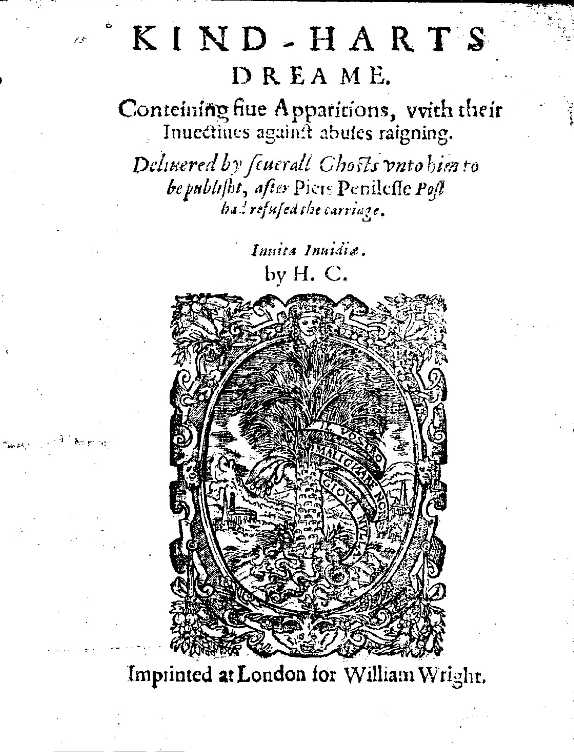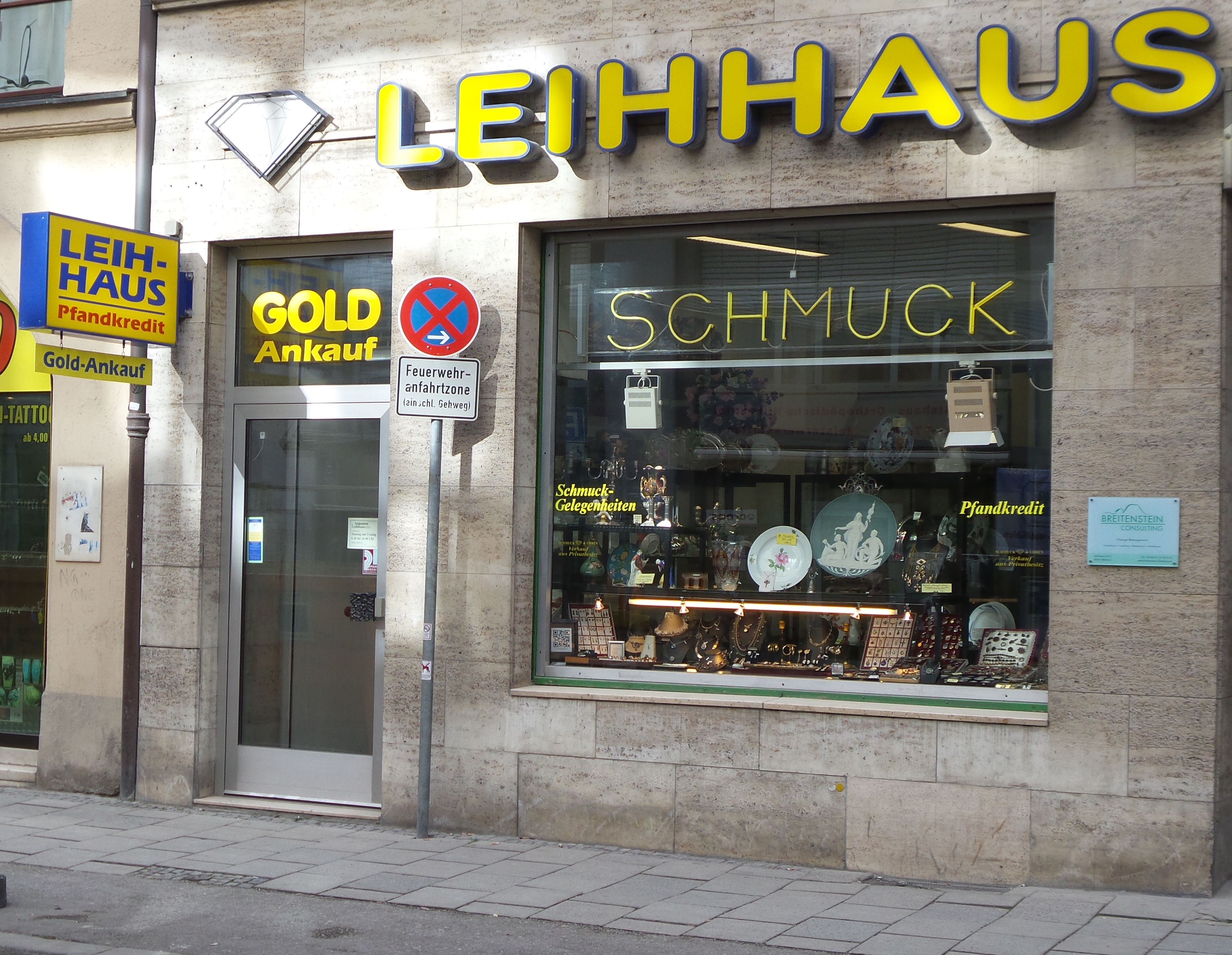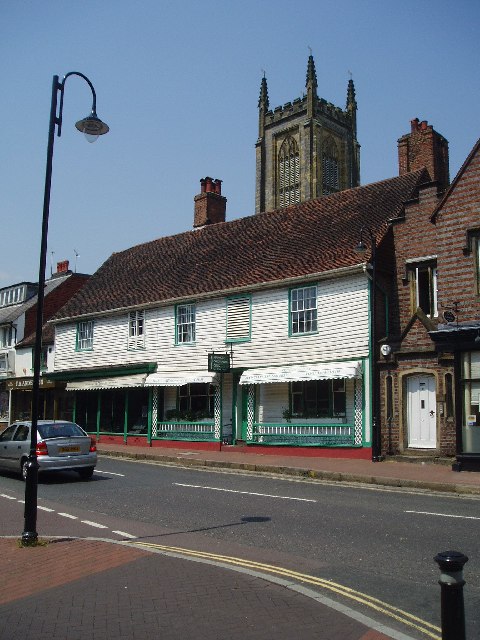|
Henslowe
Philip Henslowe (c. 1550 – 6 January 1616) was an Elizabethan era, Elizabethan theatrical entrepreneur and impresario. Henslowe's modern reputation rests on the survival of his diary, a primary source for information about the theatrical world of Renaissance London. Life Henslowe was born in Lindfield, West Sussex, Lindfield, Sussex, into a family with roots in Devon. His father, Edmund Henslowe, was appointed Master of the Game for Ashdown Forest, Sussex, from 1539 until his death in 1562. Before Edmund Henslowe's death, his daughter Margaret had married Ralf Hogge, an ironmaster. By the 1570s, Henslowe had moved to London, becoming a member of the Worshipful Company of Dyers, Dyers' Company. Henslowe is recorded working as assistant to Henry Woodward, reputed to be the bailiff for Anthony Browne, 1st Viscount Montagu, owner of Cowdray House and Battle Abbey in Sussex. Henslowe married Woodward's widow, Agnes, and from 1577 lived in Southwark, opposite the Clink prison. Hi ... [...More Info...] [...Related Items...] OR: [Wikipedia] [Google] [Baidu] |
The Rose (theatre)
The Rose was an Elizabethan theatre. It was the fourth of the public theatres to be built, after The Theatre (1576), the Curtain (1577), and the theatre at Newington Butts (c. 1580?) – and the first of several playhouses to be situated in Bankside, Southwark, in a liberty outside the jurisdiction of the City of London's civic authorities. Its remains were excavated by archaeologists in 1989 and are listed by Historic England as a Scheduled Monument. History The Rose was built in 1587 by Philip Henslowe and by a grocer named John Cholmley. It was the first purpose-built playhouse to ever stage a production of any of Shakespeare's plays. The theatre was built on a messuage called the "Little Rose," which Henslowe had leased from the parish of St. Saviour, Southwark in 1585. The Rose was the first of several theatres to be situated in Bankside, Southwark near the south shore of the River Thames. The area was known for its leisure attractions such as bear/bull-baitings, gam ... [...More Info...] [...Related Items...] OR: [Wikipedia] [Google] [Baidu] |
Admiral's Men
The Admiral's Men (also called the Admiral's company, more strictly, the Earl of Nottingham's Men; after 1603, Prince Henry's Men; after 1612, the Elector Palatine's Men or the Palsgrave's Men) was a playing company or troupe of actors in the Elizabethan and Stuart eras. It is generally considered the second most important acting troupe of English Renaissance theatre (after the company of Shakespeare, the Lord Chamberlain's or King's Men). Beginnings They were first known as the Lord Howard's Men, named after their patron Charles Howard, 1st Earl of Nottingham. The company played once at Court on December 1576 (the play was called ''Tooley''), again on 17 February 1577 (''The Solitary Knight''), and a third time the following Christmas season, 5 January 1578 (all dates new style). They toured widely, from Bath to Nottingham, in the years 1577–79. A powerful patron like Howard could make a great difference in a company's fortunes. Though there is little evidence that he ... [...More Info...] [...Related Items...] OR: [Wikipedia] [Google] [Baidu] |
Henry Chettle
Henry Chettle (c. 1564 – c. 1606) was an English dramatist and miscellaneous writer of the Elizabethan era, best known for his pamphleteering. Early life The son of Robert Chettle, a London dyer, he was apprenticed in 1577 and became a member of the Stationer's Company in 1584, traveling to Cambridge on their behalf in 1588. His career as a printer and author is shadowy. He may have set up some of the tracts printed in response to Martin Marprelate. In 1591, he entered into partnership with William Hoskins and John Danter, two stationers. They published a good many ballads, and some plays, including a surreptitious and botched first quarto of ''Romeo and Juliet'', to which it is suggested Chettle added lines and stage directions. ''The Groat's-Worth of Wit'' In 1592 ''Greene's Groats-Worth of Wit'', supposedly the work of the recently deceased, and very popular, Robert Greene, was published, having been entered in the register of the Stationer's Company "at the peril of H ... [...More Info...] [...Related Items...] OR: [Wikipedia] [Google] [Baidu] |
Ralf Hogge
Ralf Hogge (his name has also been rendered "Ralph" and "Huggett") was an English iron-master and gun founder to the king. Web page titled "Historical Village Walk' at Buxted Village Web site, accessed March 2, 2007 Working with French-born cannon-maker Pierre Baude and for his employer, parson William Levett, Hogge succeeded in casting the first iron cannon in England, in 1543. After Levett's death, Hogge went into business for himself, producing cannons with the process he had helped perfect. Hogge's increasing skill at his profession as well as his burgeoning business was manifest in 1560, when Hogge ceased to be known as 'servant to Parson Levett'; after that date, he was "Mr. Ralf Hogge, gentleman." The revolution in English ironfounding had brought a humble tradesman to the status of country squire. This event was immortalised in verse as: :''Master Huggett and his man John'' :''they did cast the first cannon.'' In the village of Buxted, East Sussex, "Hogge is assumed ... [...More Info...] [...Related Items...] OR: [Wikipedia] [Google] [Baidu] |
Southwark
Southwark ( ) is a district of Central London situated on the south bank of the River Thames, forming the north-western part of the wider modern London Borough of Southwark. The district, which is the oldest part of South London, developed due to its position at the southern end of the early versions of London Bridge, the only crossing point for many miles. London's historic core, the City of London, lay north of the Bridge and for centuries the area of Southwark just south of the bridge was partially governed by the city. By the 12th century Southwark had been incorporated as an ancient borough, and this historic status is reflected in the alternative name of the area, as Borough. The ancient borough of Southwark's river frontage extended from the modern borough boundary, just to the west of by the Oxo Tower, to St Saviour's Dock (originally the mouth of the River Neckinger) in the east. In the 16th century, parts of Southwark became a formal City ward, Bridge Without. ... [...More Info...] [...Related Items...] OR: [Wikipedia] [Google] [Baidu] |
Lindfield, West Sussex
Lindfield is a village and civil parish in the Mid Sussex District of West Sussex, England. The parish lies to the north-east of Haywards Heath, and stands on the upper reaches of the River Ouse. The name 'Lindfield' means 'open land with lime trees.' The parish Church, All Saints, stands at the top of the High Street and its history goes back to 1098. One of the oldest houses in the village is Church House, formerly known as The Tiger, and still referred to as "The Tiger" by Lindfield residents. It is classified as an Area of Outstanding Natural Beauty. The village The village stands on high ground above the upper reaches of the River Ouse. It is situated close to both the natural beauty of the High Weald and to Haywards Heath with its amenities and station on the main London-Brighton railway line. Lindfield has a rich historic and architectural heritage. The ancient High Street, lined with lime trees, has over forty medieval and post medieval timber-framed houses, wit ... [...More Info...] [...Related Items...] OR: [Wikipedia] [Google] [Baidu] |
The Theatre
The Theatre was an Elizabethan playhouse in Shoreditch (in Curtain Road, part of the modern London Borough of Hackney), just outside the City of London. It was the first permanent theatre ever built in England. It was built in 1576 after the Red Lion, and the first successful one. Built by actor-manager James Burbage, near the family home in Holywell Street, The Theatre is considered the first theatre built in London for the sole purpose of theatrical productions. The Theatre's history includes a number of important acting troupes including the Lord Chamberlain's Men, which employed Shakespeare as actor and playwright. After a dispute with the landlord, the theatre was dismantled and the timbers used in the construction of the Globe Theatre on Bankside. History The Mayor and Corporation of London banned plays in 1572 as a measure against the plague, not wanting to attract crowds of strangers. In 1575 they formally expelled all players from the city. This prompted the constr ... [...More Info...] [...Related Items...] OR: [Wikipedia] [Google] [Baidu] |
Elizabethan Era
The Elizabethan era is the epoch in the Tudor period of the history of England during the reign of Queen Elizabeth I (1558–1603). Historians often depict it as the golden age in English history. The symbol of Britannia (a female personification of Great Britain) was first used in 1572, and often thereafter, to mark the Elizabethan age as a renaissance that inspired national pride through classical ideals, international expansion, and naval triumph over Spain. This "golden age" represented the apogee of the English Renaissance and saw the flowering of poetry, music and literature. The era is most famous for its theatre, as William Shakespeare and many others composed plays that broke free of England's past style of theatre. It was an age of exploration and expansion abroad, while back at home, the Protestant Reformation became more acceptable to the people, most certainly after the Spanish Armada was repelled. It was also the end of the period when England was a separate r ... [...More Info...] [...Related Items...] OR: [Wikipedia] [Google] [Baidu] |
History Of The English Fiscal System
The history of the English fiscal system affords the best known example of continuous financial development in terms of both institutions and methods. Although periods of great upheaval occurred from the time of the Norman Conquest to the beginning of the 20th century, the line of connection is almost entirely unbroken. Perhaps the most revolutionary changes occurred in the 17th century as a result of the Civil War and, later, the Glorious Revolution of 1688; though even then there was no real breach of continuity. The primitive financial institutions of History of Anglo-Saxon England, early England centred round the English monarchy, king's household. In other words, the royal preceded the national economy in importance. Revenue dues collected by the king's agents, rents, or rather returns of produce from land, and special levies for emergencies formed the main elements of the royal income which gradually acquired greater regularity and consistency. There is, however, little or n ... [...More Info...] [...Related Items...] OR: [Wikipedia] [Google] [Baidu] |
Pawnbroker
A pawnbroker is an individual or business (pawnshop or pawn shop) that offers secured loans to people, with items of personal property used as collateral. The items having been ''pawned'' to the broker are themselves called ''pledges'' or ''pawns'', or simply the collateral. While many items can be pawned, pawnshops typically accept jewelry, musical instruments, home audio equipment, computers, video game systems, coins, gold, silver, televisions, cameras, power tools, firearms, and other relatively valuable items as collateral. If an item is pawned for a loan (colloquially "hocked" or "popped"), within a certain contractual period of time the pawner may redeem it for the amount of the loan plus some agreed-upon amount for interest. In the United States the amount of time, and rate of interest, is governed by law and by the state commerce department policies. They have the same license as a bank, which is highly regulated. If the loan is not paid (or extended, if applica ... [...More Info...] [...Related Items...] OR: [Wikipedia] [Google] [Baidu] |
East Grinstead
East Grinstead is a town in West Sussex, England, near the East Sussex, Surrey, and Kent borders, south of London, northeast of Brighton, and northeast of the county town of Chichester. Situated in the extreme northeast of the county, the civil parish has an area of . The population at the 2011 Census was 26,383. Nearby towns include Crawley and Horley to the west, Tunbridge Wells to the east and Redhill and Reigate to the northwest. The town is contiguous with the village of Felbridge to the northwest. Until 1974 East Grinstead was in East Sussex, before joining together with Haywards Heath and Burgess Hill as the Mid-Sussex district of West Sussex. The town is on the Greenwich Meridian. It has many historic buildings, and the Weald and Ashdown Forest lie to the south-east. Places of interest The High Street contains one of the longest continuous runs of 14th-century timber-framed buildings in England. Other notable buildings in the town include Sackville College, the san ... [...More Info...] [...Related Items...] OR: [Wikipedia] [Google] [Baidu] |
Brothel
A brothel, bordello, ranch, or whorehouse is a place where people engage in sexual activity with prostitutes. However, for legal or cultural reasons, establishments often describe themselves as massage parlors, bars, strip clubs, body rub parlours, studios, or by some other description. Sex work in a brothel is considered safer than street prostitution. Legal status On 2 December 1949, the United Nations General Assembly approved the Convention for the Suppression of the Traffic in Persons and of the Exploitation of the Prostitution of Others. The Convention came into effect on 25 July 1951 and by December 2013 had been ratified by 82 states. The Convention seeks to combat prostitution, which it regards as "incompatible with the dignity and worth of the human person." Parties to the Convention agreed to abolish regulation of individual prostitutes, and to ban brothels and procuring. Some countries not parties to the convention also ban prostitution or the operation of broth ... [...More Info...] [...Related Items...] OR: [Wikipedia] [Google] [Baidu] |






.jpg)


